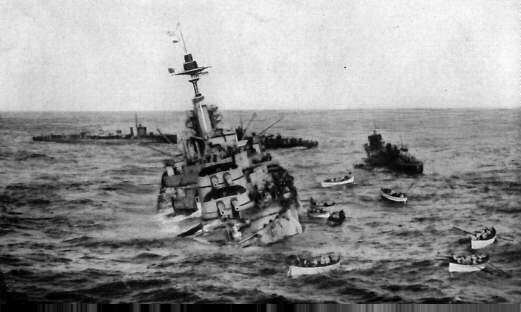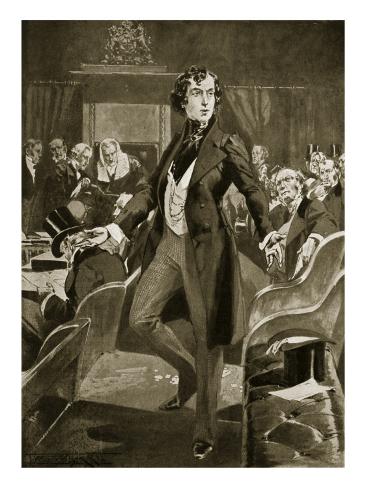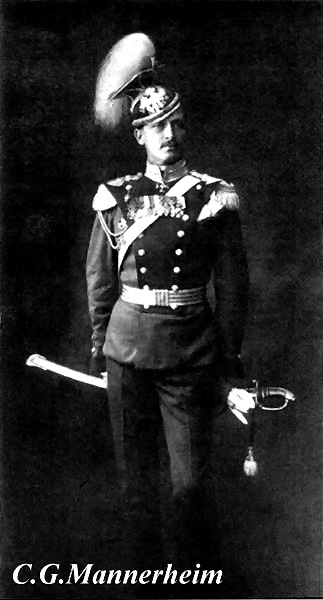A Brief History of Scandinavia, Part III
"Our free Fatherland needs soldiers!" - Johan Litenfingret, War Minister and Last Chancellor of the Imperial Rikstag
The 20th century began auspiciously. Since the beginning of the 1890's the Scandinavian intelligentsia had begun to rest on its laurels, satisfied with the achievements of liberalization and democratization at home and colonization abroad. Scandinavians could be proud that the Empire was one of the largest holders of colonial territories in the world, a practical half of the African continent, as well as a third of the Americas if one considered Vinland an extension of the colonial empire. At this time many people did. It was the era of "imperial socialism", or as its critics called it, the politics of mediocrity. Leading political figures were contented with the status quo, so much so that the status quo became the end to which all means were directed at home and abroad. Imperial foreign policy was concerned above all else with the maintenance of the status quo. Disarmament was never in the cards, not for the lauded Imperial Army, but no one was interested in the expansion of the military. There was no need. Why would Scandinavia ever fight a war again? It was generally accepted by Erik Bostrom, when he rode the wave of imperial socialism into office in 1899 as Chancellor of the Imperial Rikstag, and his government that those who would oppose the status quo were too divided, too contentious amongst themselves, to ever become a force to be reckoned with. It was a good time to be a citizen of the "Nordic international community".
Portrait of Emperor Harald II, roughly 1901
By 1900 Empress Christine had been dead for nine years. The "Christinian Era", marked primarily by the modernization and liberalization of the government, was considered to be in continuation by her son, the mustached and stern Harald II. Harald II, named of course for his father the "True King of Norway" who everyone conveniently forgot was a separatist, nationalist and traitor to the long-dead Swedish Empire, had spent the first nine years of his reign doing his best to separate himself from his adolescent persona as a brash and adventurous playboy. In the process he had done much to injure the public image of the monarchy, casting a shadow of suspicion, mistrust and above all pretension on the imperial house. He struck the public as above all else cold and aloof, completely unlike the warm and matronly Christine. He was equally unsuccessful in projecting the ironic, "Father of the Nation" appeal which his father had cast. Despite his flaws in achieving public appeal, Harald II was instrumental in the youth of his reign in being a mover and shaker in the imperial socialist movement, as well as a prolific supporter of the Bostrom chancellory.
The Imperial Socialist - Erik Gustaf Bostrom, Chancellor of the Imperial Rikstag 1900 - 1905
Bostrom's foreign policy was one of containment. Several enemies had been identified to the all-important status quo: Brandenburg, Britain and Brazil. To that end Bostrom and his cabinet approved heartily of the creation of the League of the Three Emperors between Scandinavia, Russia and the Roman Empire. The League was considered the end-all-be-all of European power blocs by the Bostrom cabinet and by the Scandinavian public, a veritable eastern bulwark against Anglo-German and Brazilian aggression. The Guyanna Crisis largely precipitated the creation of the League, as well as the revival of the Brazilian-Scandinavian rivalry/inveterate enmity. Separate alliances with Poland, the Netherlands, Franco-Burgundy, Austria and a continued detente with Japan were considered to round out the portfolio of allies of the world order. The sure optimism of 1900, 1901 and even 1902 would be quickly dashed.
An odd man out, the Industry Party's Johan Litenfingret, War Minister
Bostrom's policy was shaped as much by himself, the Emperor and by the director of the Department of Foreign Affairs as it was by the young Johan Litenfingret, famed War Minister whose name was given to Scandinavia's conscript armies in the Great War. Also Scandinavia's last elected head of state. Litenfingret was a war-hawk above all else, as shrewd a strategist as he was a politico, a concession to the Industry Party in light of his supreme confidence. His service alongside the decorated and equally-young Mannerheim in the Kongo brush wars of the 1890's had colored him with the brush of adventure, patriotism and fearlessness. Litenfingret, as much as he professed to love democracy, was an admirer first and foremost of the Russian system of patronage. He was an ambassador from a different age in his political beliefs, but he was tolerated in the Bostrom cabinet for his supreme competence, as well as his ability to reign in the more left-leaning elements of the cabinet like the poorly-appointed Minister of Foreign Affairs, Gustav Staaff.
Staaff's incompetence, or more accurately, brash abandon would come into the light of day following the events of the Pomeranian Murders. From the opening weeks of 1901 onwards, a member or members (no single individual was ever assigned blame) of the German Brotherhood in Pomerania began a campaign of terror and murder against Scandinavian citizens and Pomeranians of Swedish descent in the Kingdom of Pomerania. A vassal to the House of Vasa, Pomerania's royal family traced its lineage to Stockholm, and increasingly was regarded as a royal house under siege as pan-German elements in Pomerania mobilized in the early years of the 20th century. As the murders wore on, and riots and insurrections popped up across Pomerania's tiny width and breadth, Brandenburg became increasingly implicated in the actions of the German Brotherhood. Scandinavian diplomats, under the behest of Litenfingret and Staaff, engaged in secret talks with the Brandenburger government fingering Brandenburg as the party responsible for the actions of the German Brotherhood. Under Staaff's orders, Scandinavian diplomats made poorly-communicated hyperbole to the meaning that if Brandenburg was willing to go to war over Pomerania, so was Scandinavia. This, with manipulation by Brandenburg's foreign office (read: fabrication of IC comments by an unnamed party

), would become the infamous Berlin Telegram where Brandenburg's government claimed Scandinavian officials had sanctioned a genocide of Pomeranian Germans. The resulting diplomatic fallout was catastrophic for Scandinavian policy. A short-lived British embargo resulted in a dramatic re-juggling of foreign policy priorities -- Pomerania was sacrificed. The royal house fled under cover of night. This was the first crack in the dam.
The Polish-Scandinavian relationship had been a complicated one. Scandinavia had snubbed Poland before (the infamous royal divorce) to little effect; Poland recognized that it relied on Scandinavia for its influence in eastern Europe. However, Scandinavia's alliance with and sponsorship of Russia and refusal to do anything to stop Franco-Burgundy and the Netherlands from feasting on Poland's paltry overseas possessions had significantly damaged the alliance. Scandinavian diplomats could do little but continue to make empty promises to the Poles in the hope that they would continue to buy into the notion that Scandinavian power was Polish power. They did not. The formation of the Krakow Pact between Britain, Brandenburg and Poland was regarded as a direct act of aggression and betrayal by Poland towards Scandinavia in the light of the Third Pomeranian Crisis.
And so, in retrospect, the battle lines were drawn. The betrayal of the Spanish-American alliance in favor of an Anglo-American one settled that a war between Britain and her allies and Spain and her allies, or more accurately, those nations in Europe which preferred Spain to Britain would be a war between the hemispheres. This concerned Bostrom and Litenfingret greatly, not so Franco-Burgundian generals, who seemed convinced that victory in Europe would ensure victory in the war. They would be disappointed on both fronts. The war began unexpectedly when Britain and Brazil embargoed the Empire of Spain regarding Spain's interference in the domestic affairs of Colombia. Continental politicos and strategists, concerned that an Anglo-Brazilian assault on Spanish power would mean Britain's control over the continent, rallied to the aid of Spain. What resulted was a chain reaction of declarations of war. Scandinavian officials would later regret the empire's entrance to the war, considered watershed moment as a break of relations and policy with Vinland and a direct cause of the December Coup and Revolution.
Soldiers of the expeditionary force to Denmark depart for Schleswig-Holstein
War Minister Litenfingret famously created the new volunteer conscript armies, called the "Litenfingret armies", making an equally-famous speech from the balconies of the Rikstag telling a crowd of young Scandinavian workers that it was "just and sweet that a young man should die for his country, his Fatherland" and exhorting the "sons of the North to give all they have for their nation". Bands played the rousing chords of the
March of the Finnish Cavalry as the nation braced itself for war.
"March of the Finnish Cavalry" as a patriotic standard notwithstanding, there were very few cavalry charges on the Danish front
The Great War would be won and lost at sea. The British navy was the best in the world, but as a singular unit, it could be challenged by the combined arms of Scandinavia, the Netherlands, Denmark, Franco-Burgundy and Spain. Scandinavian admirals were adamant that the Spanish home fleet be dedicated to a combined assault on the British fleet in the Channel and the North Sea but were rebuffed by the Spanish, who were concerned that the British would capitalize on Spain's weakness abroad to do irreparable damage to Spain's flagging colonies. Engagements in the North Sea, despite all the fighting on land in Schleswig-Holstein, in the Rhineland and in the Eurasian plain would determine the course of the war, or at least who the "Continental Powers" considered to be victorious. Initial successes in the North Sea and the destruction of British shipping facilities at Scapa Flow and along the eastern coast would turn to abject failure during the Irish Sea Debacle. The complete devastation of the Continental fleets was completed in the Irish Sea and the Channel during the failed invasion of Ireland as a diversionary tactic. Scandinavian ships went down in flames, the radioed taunts of an admiral being the last records to escape the flames and the waves, "We'll be seeing you gentlemen in Valhalla."
Flagship of the Scandinavian Irish Sea Armada the dreadnought Christine sinks beneath the waves
Defeat in the Irish Sea and stalemate on the Continent, compounded by the British torching of Oslo's shipyards in retaliation for Scapa Flow, spelled the end of Scandinavia's willingness to continue the war. Strategists feared that in light of the destruction of Scandinavia's navy Polish armies might land in Stockholm and subject the nation to the humiliation of occupation, potentially a forced dismemberment. Bostrom and Staaff, the subject of derision and mistrust at home, dispatched Litenfingret to London to conduct negotiations on the nation's behalf. There he made his case, immortalized by Scandinavian artists as an impassioned speech for peace and reconciliation. More accurately a list of requests.
"Peace and Reconciliation" Litenfingret's motto at London and the name of this romanticized image of the negotiations
Japan's participation on the wrong side of the conflict resulted in the loss of Scandinavian possessions in China, as well as the loss of Franco-Burgundian, Spanish, Dutch and Danish holdings in the east. What Litenfingret's "Peace and Reconciliation" amounted to was a calculated plea to dismember, deflower and strip of territories all nations but Scandinavia and her closest allies.
The resulting treaty brought peace, briefly, to Scandinavia. Bostrom and the Liberal Party were irreparably tarnished by the events of the Great War and Litenfingret, who was viewed as a rising star and the new face of the Industry Party, emerged unsullied from the rubble of the war. Bostrom was quickly and vigorously sacked and replaced by Litenfingret who would be the last Chancellor of the Imperial Rikstag to reside in Stockholm. The future did not belong to Litenfingret but an old coworker of his, the young and ambitious former liaison to the Kongo Society, Karl Mannerheim.
Portrait of Mannerheim in Imperial Army dress uniform, early months of the Great War
----------
@mtcicero, there has never been and is not now any official "Imperial Lutheran" body. Lutheranism has just been an important force in Scandinavian politics and culture.



 ), would become the infamous Berlin Telegram where Brandenburg's government claimed Scandinavian officials had sanctioned a genocide of Pomeranian Germans. The resulting diplomatic fallout was catastrophic for Scandinavian policy. A short-lived British embargo resulted in a dramatic re-juggling of foreign policy priorities -- Pomerania was sacrificed. The royal house fled under cover of night. This was the first crack in the dam.
), would become the infamous Berlin Telegram where Brandenburg's government claimed Scandinavian officials had sanctioned a genocide of Pomeranian Germans. The resulting diplomatic fallout was catastrophic for Scandinavian policy. A short-lived British embargo resulted in a dramatic re-juggling of foreign policy priorities -- Pomerania was sacrificed. The royal house fled under cover of night. This was the first crack in the dam.











